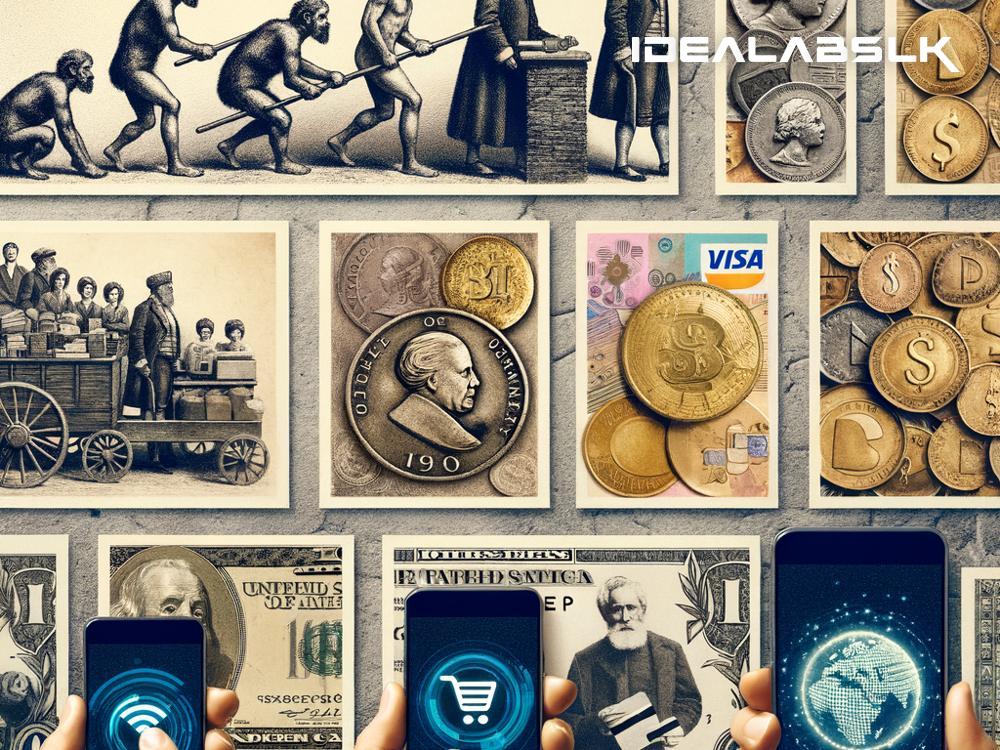The Origins of Digital Wallets: A Digital Evolution
In a world buzzing with the latest technology, digital wallets have become our new best friends. Gone are the days when we fumbled with cash or cards at checkout counters. Instead, a quick tap on our smartphones does the trick. But ever wondered where this convenient innovation started? Let's take a dive into the origins of digital wallets and uncover the journey of how they became an indispensable part of our lives.
The Early Beginnings
The concept of digital wallets may seem like a product of the 21st century, but its roots trace back further than you might think. In the 1990s, when the internet was just starting to boom, the concept of electronic money was born. This period marked the first attempts to create a digital transaction system that would allow people to purchase goods and services online, with software applications designed to hold and use digital cash.
One of the earliest digital wallets was introduced by a company called DigiCash in 1994, which used encryption to maintain the security and privacy of online transactions. Though DigiCash eventually declared bankruptcy, its pioneering efforts laid the groundwork for future digital payment solutions.
Entering the New Millennium
As we stepped into the 2000s, the digital wallet landscape began to rapidly evolve. With the widespread adoption of the internet and the rise of e-commerce platforms like eBay and Amazon, the need for an efficient online payment system became more apparent. PayPal emerged as an innovative solution, offering an easy way for users to send and receive money electronically. By linking bank accounts or credit cards to a PayPal account, people could shop online without directly exposing their financial details, adding an extra layer of security.
The launch of PayPal set a new standard for digital transactions and pushed other companies to explore digital wallets' potential. However, the real game-changer came with the introduction of smartphones.
The Smartphone Revolution
Smartphones transformed digital wallets from a niche concept to a mainstream convenience. With powerful processors and near field communication (NFC) technology, smartphones could securely store financial information and communicate wirelessly with payment terminals.
In 2011, Google introduced Google Wallet, one of the first attempts to leverage smartphone capabilities for in-store payments. Users could store debit cards, credit cards, and loyalty cards within their digital wallet, making it easier to pay without physical cards. Although Google Wallet gained some traction, it wasn't until Apple launched Apple Pay in 2014 that digital wallets truly took off.
Apple Pay's seamless integration into the iOS ecosystem, combined with its emphasis on security and privacy, persuaded both consumers and businesses to adopt digital payments. Following Apple's lead, other tech giants like Samsung and Android (Google Pay) introduced their own versions, reinforcing the digital wallet trend.
Global Acceptance and the Road Ahead
Today, digital wallets are used worldwide for a wide range of transactions, from purchasing coffee to transferring money across borders. Fintech companies are continuously innovating, introducing features like peer-to-peer payments, real-time spending trackers, and integration with other financial services. The emergence of cryptocurrency wallets has further expanded the digital wallet ecosystem, enabling users to securely manage their digital currencies.
As digital wallets become more integrated into our daily lives, they pave the way for a future where physical wallets could become obsolete. Innovations in biometric security, such as fingerprint and facial recognition, are making digital transactions more secure than ever. Additionally, advancements in blockchain technology and the potential for central bank digital currencies (CBDCs) promise to enhance the efficiency and accessibility of digital wallets.
Conclusion
The journey of digital wallets from a novel idea to a global phenomenon reflects our society's broader digital transformation. What started as a simple concept to facilitate online purchases has evolved into a complex ecosystem that offers convenience, security, and innovation. As technology continues to advance, digital wallets will undoubtedly play a pivotal role in shaping the future of commerce.
In this digital age, the evolution of digital wallets is a testament to human ingenuity and our relentless pursuit of progress. As we look back on their origins, it's exciting to ponder where this digital revolution will take us next.

